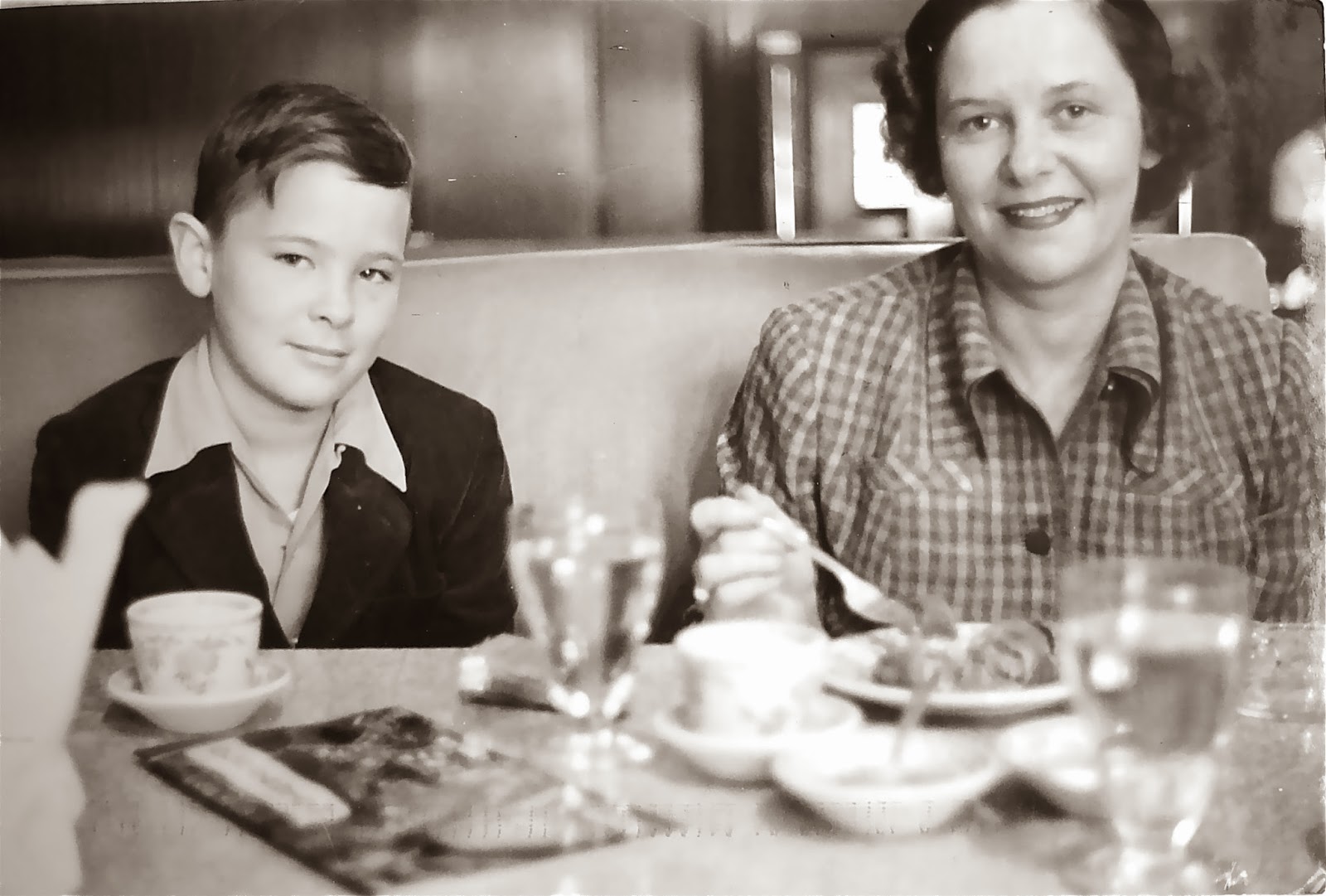Dear George,
Monday, December 8, 2025
A POETRY QUIZ: HUMAN OR ARTIFICIAL INTELLIGENCE?
Thursday, November 27, 2025
A DAY FOR THANKS
Dear George,
Friday, August 29, 2025
SIXTY-FIVE
Dear George,
Friday, August 1, 2025
KATJA'S FALL
Dear George,
Monday, July 21, 2025
EIGHTY-EIGHT, HARD TO BELIEVE
Dear George,
Saturday, June 14, 2025
WRITING SONNETS
Dear George,
Sunday, May 11, 2025
MOTHERS' DAY 2025
Dear George,
Here we are at another Mothers’ Day, definitely the most sentimental day of the year. My mother, Doris, passed away in 1986 at the age of 76. Her last years were pretty miserable. Crippled by circulation problems, depressed, and relying on booze to soothe her pain, she spent a lot of time as a virtual recluse at Farm, our parents’ beloved retirement home. All of that pain and suffering was the total opposite of most of her adult life in which she was a vivacious, razzmatazz sort of woman.
Doris grew up as a flapper in the 1920’s, and one of her cardinal values was having fun. She worried that her children didn’t have as much fun as she and Vic (my dad) had, and I’m sure she was right. Doris and Vic had a wonderful group of friends, and they got together regularly for parties of all sorts — art parties, poetry parties, music parties, theater parties, and especially costume parties. Doris loved entertaining, and there was a constant flow of friends into our house, We children were beneficiaries, since that frequently meant getting together with other kids.
Doris felt at home when we moved to the country, since she was basically a nature lover. She planted and maintained a luxurious garden along the west wall of our lawn, and taught me to watch the hummingbirds darting among the flowers. She supplied a bird feeder outside our dining room window, taught us the names of all the birds, and kept an ongoing list of all the birds she saw during the day. She and Vic traipsed around the county, bringing home wildflowers to transplant, and for Vic to paint watercolors of.
Our two Irish Setters, Mike and Micki, were a big part of Doris’s life, and she adored them. One time she had to go to the hospital for a nasty gash in her arm when she tried to break up a fight between the dogs. And, as I wrote about recently, she risked her life to save Mike when he fell through the ice on the river. In her later years Doris had a white Persian cat named Lovely, and she was as fond of the cat as she’d been of the dogs.
Doris and Vic went on annual trips with friends to see the Metropolitan Opera in Minneapolis, and they went sailboating with friends in the annual Mackinac Island boat race. They also took us kids each year on a trip to Chicago where we took in the Art Institute, the Museum of Science and Industry, the Maxwell St. Flea Market, and the Kungsholm Restaurant where we enjoyed Swedish smorgasbord. Our trip to Mexico City in 1952 was a highlight of my brother Steven’s and my young lives.
Doris performed in community theater, participated in Great Books discussion groups, played bridge with friends, belonged to a long-standing book club, and was a member of the D.A.R. (which she didn’t like to admit). She was also a super cook: turkey, pot roast, liver sausage, meatloaf, and especially whitefish, caught locally in Green Bay and Lake Michigan. Thanksgiving and Easter were big meals, and Christmas was the major highlight when our whole extended family joined us. On my last trip to Farm, she taught me to cook broiled whitefish so I could carry on the tradition.
As a dedicated homemaker, Doris spent a lot of time with her four children: Steven, Peter, Vicki, and myself. After having three boys, she was thrilled to finally have a girl, and Vicki got special attention. We weren’t allowed to go swimming until Doris was in the front yard lawn chair, acting as our lifeguard. She held mini-therapy sessions for Steven and I about bullying, fighting, and sibling jealousy, though it was never very successful. Most of all, our mother was filled with laughs and was lots of fun.
In her final days at Marinette General Hospital, her four children flew in from around the country. I think Doris was shocked by the realization of what that meant. In her waning hours she asked Peter and I to leave her room so she could be alone. We stood in the hospital corridor for a while, unsure what to do, and finally went back in. Doris said, “I’m grateful.” I think those were her final words. Having all led happy and successful lives, I’d say we children have also been grateful for many years. Happy Mothers’ Day, Mom.
Love,
Dave
Thursday, April 24, 2025
OLD AGE TRIVIA
Dear George,
BASIC INFO











































































































































































